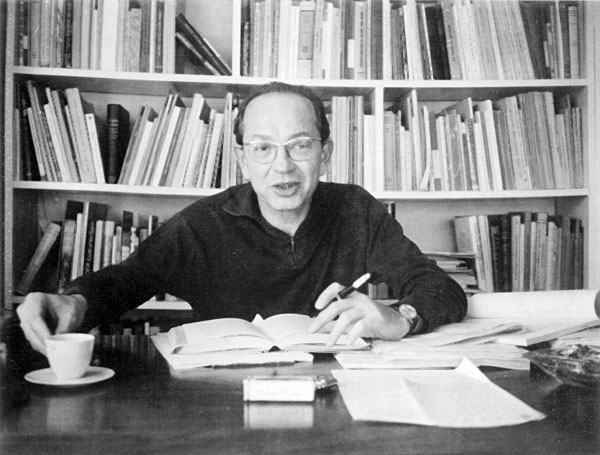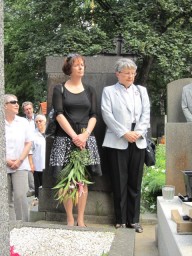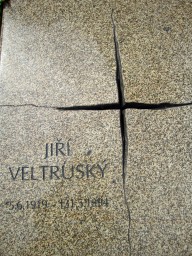[Note from Christopher: For most of 1995, during a time when I lived in Paris, I worked for an international trade union organization. But my boss didn’t give me much to do. I sat in an office with lots of thinking time on my hands. So I thought, and I wrote about what I was thinking. At the time, I was thinking a lot about the biological basis of human behavior, about civilization, about the possibility of free will and choice, and about art. Somehow they all connected. But how? I wrote the following essay trying to discover the connection. I’ve done a lot of thinking and writing about the subject since, and much of it is clearer now than it was in 1995. Quite honestly, the essay could use a good editing. Still, it lays out some important groundwork and reflects where I was in the discovery process at that time.]
(Paris, France—1995)
A biologist friend who lives in a cabin on the beach north of Galveston writes me continually. He sends observations on the biological basis of human behavior, that being his main interest and main pursuit, too, when he isn’t hauling dirty laundry. That is his job: Residents along the beach pay him to collect their dirty laundry, ferry it from Bolivar Peninsula to a Galveston laundromat, then return it clean. It is, he notes, a job which implies ultimate trust.
In his frequent writings he also sends pithy quotes—the last from Mediocretes: “Anyone who believes in an imaginary being is an imaginary being.”—but mostly he conveys his latest observation on human behavior and a plausible biological explanation for it.
His continuing investigation of the biological basis of human behavior has always intrigued me. Like him, I believe it to be true. That is, I look for first cause in biology. Only he traces its trail like a bloodhound, following the mildest scent through hill and dale and desert and creek, losing it for a bit, finding it, inevitably losing it again, bellowing with surprise and relief and enthusiasm when he finds it once more—persistent always, tenacious—until he finally locates the perpetrator, laid up in some barn or house disguised in some contemporary social or cultural or political finery, posing in the garb of free will or choice. I like that about him—that and the pithy quotes from Mediocretes and others—and always have. The best scientist is a poet, too, as we know: consider dreams of snakes in a circle eating one another’s tails, or noticing volume’s relation to displacement while taking a bath, and so on.
Though I believe the fundamental basis of human behavior is biological, I tend to begin my thinking with “the choice.” (Perhaps, in terms of intellectual integrity, this is a mistake, though in pragmatic terms I’m not sure it makes a difference.) Anyway, “the choice.” That is, I believe we do make choices and have the freedom to do so. Admittedly, those choices are limited by circumstances: biological (gender, size), psychological (personal, familial) and social (cultural, political, economic). For example: You choose a pet cat instead of a pet dog because your wife hates dogs and besides that a dog once bit you and moreover you hate stepping into random deposits in the yard. So choices do get made, and they are regarded as “free” despite limiting circumstances; after all, you could tell your wife to get lost and overcome fear of dogbite and hire the kid next door to police your yard.
In any case, the basis of the idea of justice—which along with compassion and freedom constructs my Trinitarian Credo, of which more later—is that each of us must be responsible for our behavior as if there is free choice. I’ll go farther: Even if there is no free choice, we still must be held responsible for our choices—a tough position, but necessary if we are to live in community. Any leniency from that stance (i.e., compassion, forgiveness) should be based not on responsibility but in consequences. To wit: the man who finds his wife in bed with another man has a choice: he can join in, walk away, shoot the intruder, shoot the wife, or shoot both of them. He is and must be responsible for what he chooses.
But the consequences vary. Joining in with them poses consequences too complex to explore here; walking away is simplest if he can manage it. But suppose he chooses the gun. In that consequence may be found leniency (legally, anyway) if he chooses to shoot one or both of the parties, though more leniency (under the guise of temporary insanity) is given for shooting the intruder than for shooting the wife or both (a bizarre arrangement for which explanation may require a retreat to biology: That is, you can shoot one lousy expendable sperm but you don’t shoot the egg… although a contemporary educated American would probably explain it in more recent post-evolutionary social terms, that being sexism, with the man treating the woman as property and shooting the trespasser while retaining the property).
What, you ask, does all this have to do with dirty laundry, Mediocretes, biology, free will, and art? Be patient and read on. Because life is not simple, explanations are not short.
My Trinitarian Credo—justice, compassion, freedom—is a personal credo but it also is the one I think necessary for a well functioning community, be it as small as a family or as large as the planet. It is largely “post-biological” in evolutionary terms for reasons I will explain. Admittedly, it is a closed system (most credos are), meaning the entire system collapses when part of it does, or when it must adapt so radically that it only vaguely resembles the original system (which, for a credo, means all is lost since the credo is by definition the original whole, harmonious and integral). In my credo, justice is based on the interplay of freedom and compassion (freedom entails choice and responsibility but consequence may be modified by compassion); compassion is based on the interplay of justice and freedom (to modify consequence one needs a just standard to modify and the free choice to carry out the modification); and freedom is based on the interplay of justice and compassion (just standards ensure optimal choices from which to choose and compassion ensures acknowledgment that those standards must be abided if choices are to be had).
That is the credo, justice being the impulse for equity, compassion being the impulse for love, freedom being the impulse for choice. Thus I recommend this credo for anyone attempting to live in community with others, and for civilization itself.
So while I understand my friend’s infatuation with the primordial biological first cause, the process of becoming human beings requires creating civilization—which means justice and compassion and freedom rather than unreflective, biological, self-centered brute force and unrestrained power over others—and in turn requires opposing and rechanneling some biological impulses and tendencies. Note that I write “opposing and rechanneling ‘some’ biological impulses and tendencies.” Why? Because some are helpful: the impulses to touch, to show affection, to protect the young, and so on. Note also that I say “the process of becoming human beings.” I refuse to call our entire species human beings; we are just homo sapiens. But some of us do become human beings, some doing it so well that we glorify or deify them (Buddha, Jesus, Gandhi, and so on).
Certainly, becoming a human being is tough uphill work; maybe we can’t as a species do it; the fact that so many of our species seemingly can’t do it makes it harder for those who can and even harder for those who actually try. Nietzsche, I think, would agree with the idea of homo sapiens versus human beings. That’s what he seemed to be onto, though of course a certain savage group of homo sapiens (Nazis) latched onto his ideas with their primitive incomprehension and used them to justify their own unreflective, primordial, biologically driven and culturally justified self-centered brute force and (for a while) unrestrained power. Unfortunately, they weren’t the first and aren’t the last; vide, ethnic cleansing in Bosnia-Croatia-Serbia, Rwanda, and other places; vide, though often less overtly brute and violent, racism almost everywhere on the planet; vide, though even more muted, the treatment of the “masses” of people by the wealthy and powerful class (we called them the “Establishment” in the sixties) in America and throughout the world.
In short, civilization has not progressed far and even the very presumption of it is laughed at by cynics and grieved over by the disappointed. In technological terms homo sapiens has progressed a great deal, but that is not what I’m referring to as civilization. Nor have the Golden Civilizations (Greece, Egypt, etc.) in our past done more than claim human being-ness for a few. No, it is the idea of a truly democratic civilization universally and successfully applying human the values like justice, compassion, and freedom to which I refer. And though I personally work every day as a trade unionist for improving the conditions in which such a civilization might emerge, I do so simply because it is an expression of what I call my civic duty; it is an acknowledgment of myself as a social being.
Of course, it also is the way I exchange my labor for my needs. But there are other ways to labor, other jobs for earning my keep. I simply have tried to create a circumstance in which the labor I exchange also is an expression of my civic duty, and that that duty is expressed not through mere contributory maintenance of things as they are but an attempt to create what they might become. Still, I do not labor under a false presumption; the prospects are not good; indeed, they are practically nil.
So, really, why do I bother? My first response is to say that my labor is yet one more thing: it is part of my attempt to become a human being. Even though the civilization I imagine may not come to pass and my efforts are for naught, for me to raise myself from homo sapiens and become a human being, I must make the effort on behalf of myself, my fellow human beings, my fellow homo sapiens who would be human beings, and for all those in the future.
Yet there is one more reason, a reason I only recently began to dimly comprehend and which is growing, gestating, awaiting birth, and will (hopefully) eventually manifest itself in my life. And this pertains not to this specific labor, this job I have in the trade union movement, nor to less substantial though broader labors that might best be called “labors in spirit” on behalf of global democracy, human rights, environmental justice, and the like. No, this labor to which I refer pertains to the labor of trying to become a human being at all. It is a great effort, demanding all of me, and it never lets up. Some would call it an obsession, but it is not. It is more than an obsession, which is, after all, merely a peculiar and individual psychological phenomenon. No, it is not personally unique, for others are engaged in the travail, as well. It goes deeper than that. And what is deeper? Biology?
Ah, yes. Perhaps. I can see my friend at the beach north of Galveston smiling triumphantly even as I write. Still, like him, perhaps I have sniffed out that ephemeral and indistinct scent and followed it back to its primordial origins. But that is following the trail backward. Let’s go forward. Where does it go? Where does this drive to become a human being take me? In what barn or house is it hiding from its pursuer and in what disguise? And why follow the scent at all?
But then, why does a cactus rose bloom in the desert when it requires untold effort and enormous resources to do it, when it cannot live long, when no one will see it? Because it can. Because it must. That is its raison d’existence (though actually the French say raison de vivre), its purpose, its mission, hence its project, and thus its biology. Therefore, that explanation is a dead-end philosophically, a feeble tautology: it does because it must and must because it does. It is mere biology and, for homo sapiens, an insufficient explanation, a tautology provoking the psychic predicament which leads to religion for most of the species, anxiety for many, the spark of creative freedom for a few.
Still, why? Why does it bloom? And what would the answer mean to us? The cactus huddles unmoving in the desert, its body collecting every spare molecule of moisture from sand and air, hoarding it within its thick flesh, growing and saving it, building it patiently and persistently toward that point in which the plant finally releases the energy into that one radiant and glorious bloom. All that for a flower! And so, the comparison: The seething masses of homo sapiens eat, shit, fuck, birth, buy, sell, trade, and die: and for what collective purpose? What rose might bloom, might emerge from all the seething noise, motion, transacting, eating, shitting, fucking, birthing, killing, dying? I give this straightforward answer: for one human being.
One human being who has transmogrified not all flesh, not all biology, but that flesh and biological impulse which holds him downward in the dark mire, in the brute unreflective past; yet who retains that irrational and fecund Dionysian impulse which roots him to the earth, the biological fundament; and who retains that flesh and biological impulse which raises him up toward the light, the reflective and reflecting illumination of the sun and his own consciousness and his own becoming human being-ness. The Apollonian sun, Christ consciousness, one human being a radiant blooming rose.
And that rose is Art.




